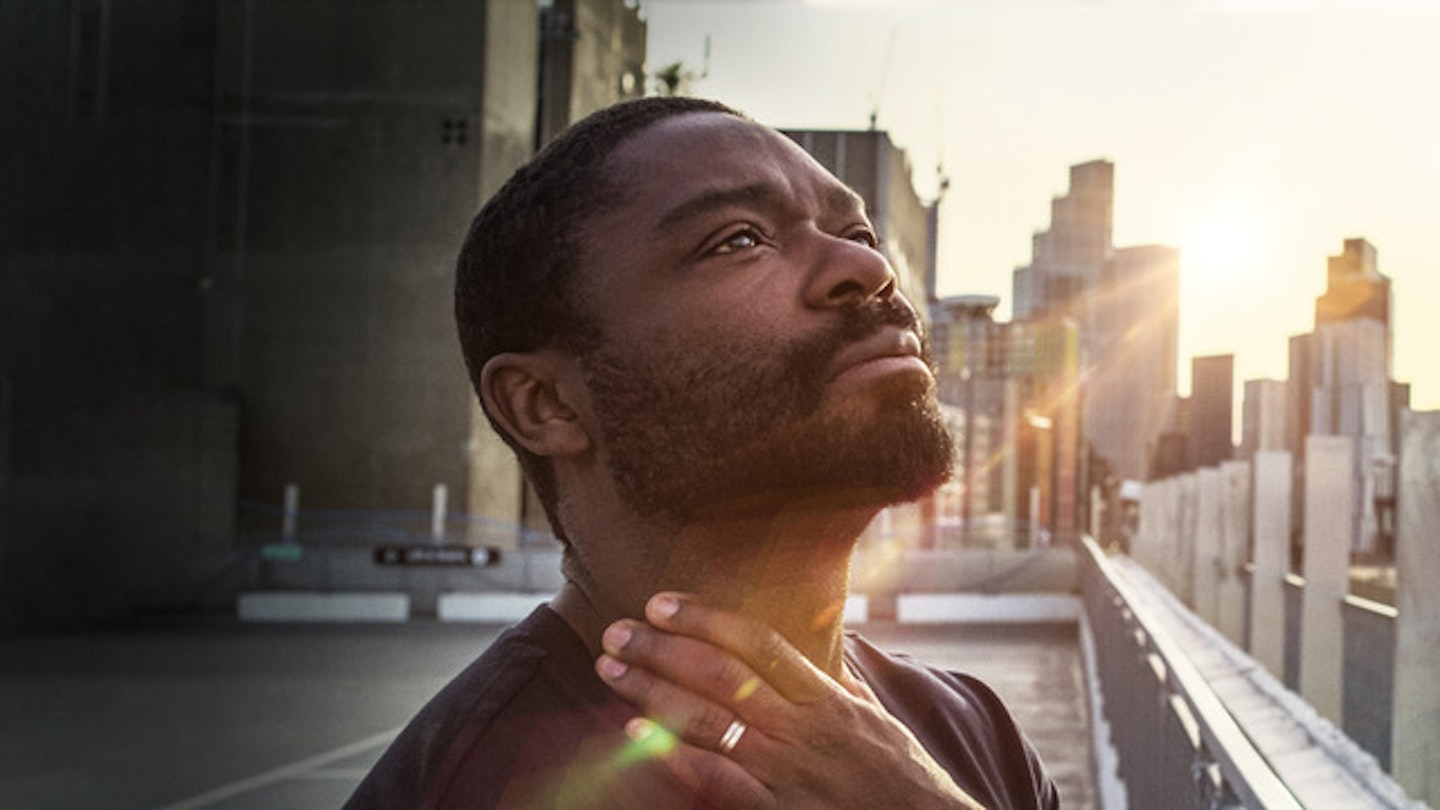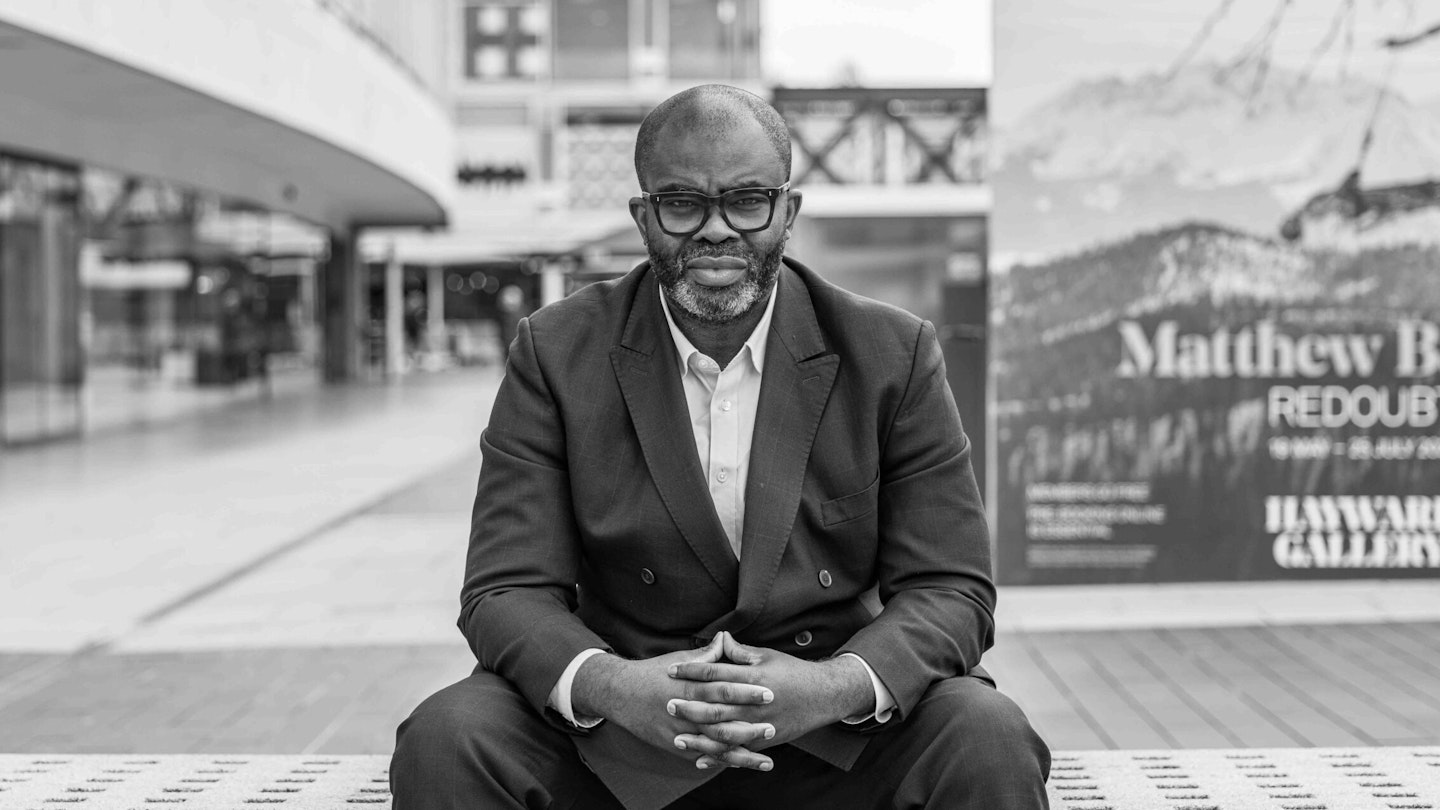When Misan Harriman sets about creating impactful art, be warned it will undoubtedly have it desired effect. His debut short film, The After, which showed at London Film Festival earlier this month, has created such a frenzy that it’s already generating Oscar buzz for all its 18 minutes of intense acting and beautiful production.
Starring David Oyelowo, best known for playing Martin Luther King in the 2014 biopic Selma, The After follows a man learning to cope with grief after witnessing a devastating random attack in London. The story by Harriman, written with John Julius Schwabach, is also Harriman’s first foray into directing after an acclaimed career in photography – having captured some of Hollywood’s most beloved stars from Rihanna and Olivia Coleman to Tom Cruise and Stormzy. As a close friend of Prince Harry and Meghan Markle, he also remotely photographed their pregnancy announcement (finding novel ways of picture taking thanks to the pandemic), plus took the first official pictures of Lilibet Mountbatten-Windsor.

But outside of his work with celebrity clientele, Harriman is perhaps best known for creating art that has true impact. His work photographing the Black Lives Matter protests in 2020 appeared in Vogue, The Guardian and was even projected on the Piccadilly Lights at Piccadilly Circus in central London. He’s documented the Extinction Rebellion, anti-Trump protests in 2019 and took some of the most striking images of the Covid-19 lockdowns during 2020 in a project called Lost in Isolation.
It's unsurprising then that his move into film is already tipped to clean up during award season – and yet despite his success, Harriman himself is perhaps the most surprised, most unassuming, of all.
‘This is all very new to me,’ he says as we chat over Zoom. ‘I’m trying not to have daily bouts of anxiety. I recognise it’s a long road to winning an Oscar but the fact it’s even in the conversation is a testament to everyone that’s put this together - from hair, makeup, stunt work, photography, storyboard, sound – this is all of us in a hot summer over five days trying to make something this isn’t just throwaway content. Something that resonates with a broad range of people who are struggling right now. If that ends up winning awards it’s great, but even more important than any award is somebody can sit in their living room and see this and recognise that even at the darkest of times there is a door.’
The After has a real impact on viewers; Harriman tells me that in some of the private screenings they’ve had, they’ve had to help people out from their seats at the end due to such an emotional reaction – many of his friends calling him ‘ugly crying’ after watching. ‘It is a serious emotional hit, which I believe was the intention but also it is about healing,’ Harriman explains. ‘When Birdy’s Let It All Go kicks in [at the end of the film], which is a really important song to my own mental health journey, I think people have a sense of hope.’
To achieve such a reaction in such a short time is powerful, but what was it about this story in particular – of grief and mental health struggles – that made Harriman want to jump into directing?
I never thought little old me would have the chance to sit in the director's chair.
‘I never thought I would have the privilege to make a film, as someone that grew up as a fan of cinema, I never thought little old me would have a chance to sit in the director’s chair,’ he recalls. ‘After meeting Nicky Bentham, who is the brilliant, kind soul who produced the film, she thought it would be good to start with a short. And there was this fully cooked story in my head, because like all of us I have been through the last three years of Covid and the world is bonkers, utterly upside down.
‘We all went through this act of God, if you will, where all of us experienced some form of stress, duress and trauma in a way that hasn’t really happened since the Second World War,’ Harriman continues. ‘While in lockdown, a lot of us had a moment of deep self-reflection I wanted to make something to recognise our open wounds, which are usually the invisible ones. I wanted to calmy let anyone watching that it’s okay not to be okay, because I don’t know anyone that is right now. This age of influencer, perceived perfection, is lethal because people are really struggling.’
When watching The After, you’ll notice certain small details that all serve to prove a wider point about our collective apathy towards people in pain – absolutely everything is intentional, and that’s where the brilliance lies. You finish the film wanting better for the world, wanting to do better yourself – a theme that runs through all of the art Harriman creates.
‘Art is the only thing that really separates us from primal nature,’ Harriman explains. ‘It’s such a soft but immensely intentional way to ask us to review existence. It’s not political, it’s not overtly manipulative because no one can force you to decide what you take from a song or a film, you decide how you are moved and that is intrinsically unique and a really powerful way to be an activist as well.’
Will Harriman be delving further into film then, perhaps with a feature-length, anytime soon? ‘Oh yeah,’ he says. ‘I want to try and be a storyteller that excites, teaches, scares, and brings joy to the world. If I’m allowed to do so, I’ll try and be as great a filmmaker as my abilities allow.’
He’ll be hitting up more of his celebrity friends for acting gigs then (although he’s keeping hush about which ones). If Harriman and the team who worked on The After can create such a powerful work of art in just 18 minutes, we can't wait to see what's next.
THE AFTER will be available on Netflix worldwide on October 25th.
